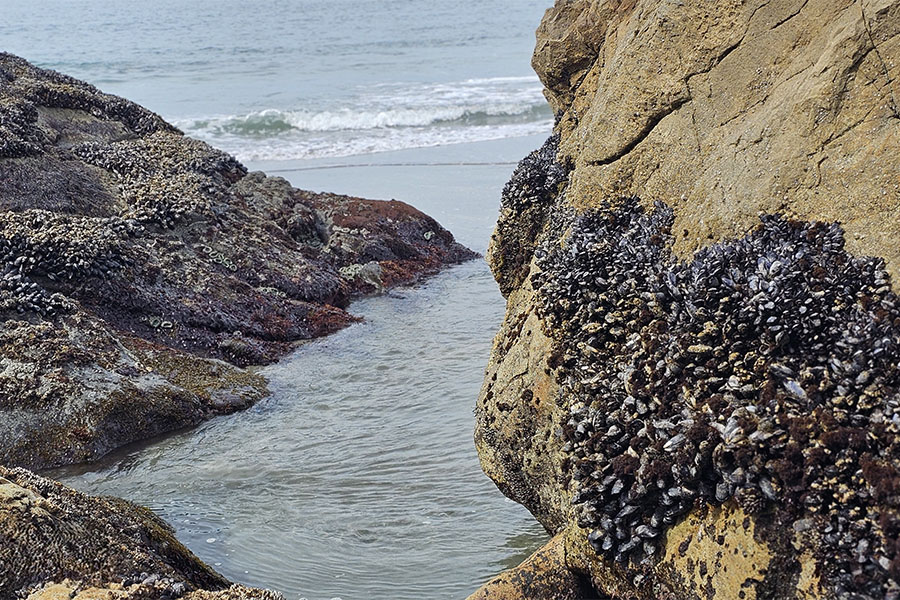20 sickened by paralytic shellfish poisoning; harvesting of razor clams, bay clams and oysters is also restricted.
Mussel harvesting has been closed along the 363-mile Oregon coastline following an outbreak of paralytic shellfish poisoning that sickened 20 people.
The mussels were taken between the Washington border and Seal Rock State Park south of Newport though the outbreak appears to also have extended to sections of the Washington and California coasts, according to officials quoted by Oregon Public Broadcasting.
At a press conference, public health representatives called the event unprecedented in terms of the number of species impacted and people sickened. Most cases were mild though a few required hospitalization, according to the Oregon Health Authority.
Elevated toxin levels were first detected on Oregon’s central and northern coasts May 17, according to the Associated Press. Since then, high levels of toxins have also been detected in bay clams, razor clams and oysters. California closed a section of its northern coast to razor clam harvesting in early May due to domoic acid, another type of biotoxin.
In addition to mussels, the harvesting of bay clams is closed from the Washington border to Cascade Head, as is the harvesting of razor clams from the mouth of the Yachats River to the California border. Agriculture officials have closed commercial oyster harvesting in Netarts and Tillamook bays on the north coast.
Officials with the Oregon Department of Agriculture say they will continue to test for shellfish toxins at least twice per month. Reopening an area closed for biotoxins requires two consecutive tests showing levels below a certain threshold.
Caused by eating contaminated shellfish, paralytic shellfish poisoning or PSP is a foodborne illness with both neurological and gastrointestinal symptoms and the most common form of shellfish poisoning. Symptoms include headache, dizziness, nausea, diarrhea and rapid pain. In severe cases, patients experience numbness of the extremities, difficulty breathing and a temporary loss of vision and speech. Symptoms appear five to 30 minutes after ingestion and begin to recede within 12 hours, regardless of severity.
A 1987 outbreak in Guatemala was fatal in 14% of cases. PSP toxins can affect birds and fish as well as humans.
Mussels are sedentary filter feeders from the bivalve mollusk family, which also includes oysters, clams and scallops. Mussels are often found stuck to wave-washed rocks in intertidal zones. As filter feeders, they’re susceptible to blooms of dinoflagellates which contain toxins, also known as a red tide.
Two species of mussel are found on the Oregon coast: bay mussels (which are bluish-black and grow to about three inches) and California surf mussels (which are brown or black and grow to about seven inches in length).
Click here to subscribe to Oregon Business.




